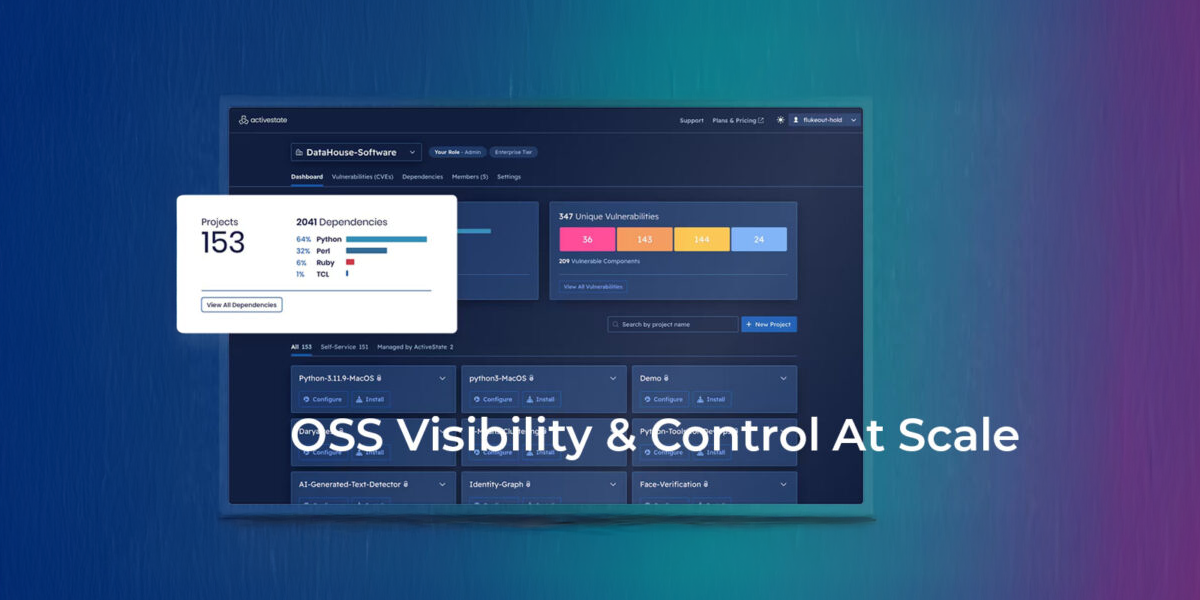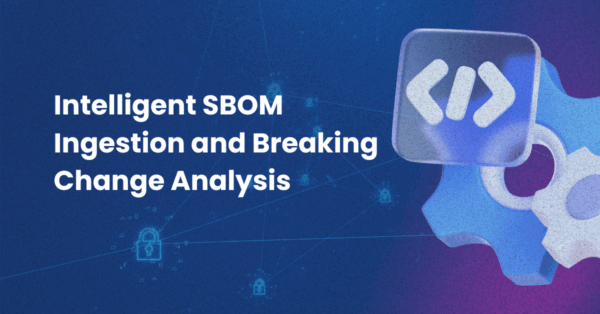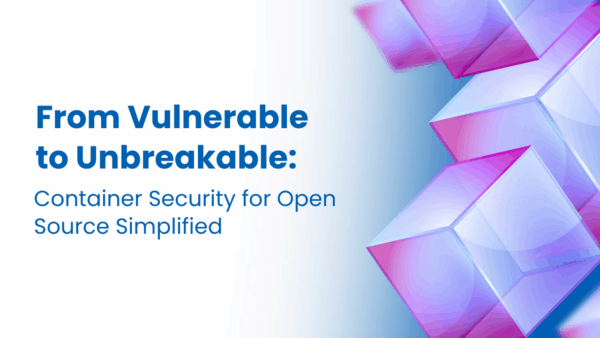If you can’t secure your open source software (OSS), no other security efforts will be able to overcome the risks inherent in your software supply chain. And you risk developers wasting significant innovation time fixing vulnerabilities, impacting developer agility and efficiency. That’s why we here at ActiveState are excited to announce the immediate availability of several new enhancements to the ActiveState platform that let enterprises like yours simplify their tool stack, while reducing security risk and accelerating their software development efforts.
These updates to our enterprise-grade solution directly address the challenges our customers and prospects have shared with us around open source security, compliance, and operational efficiency and provide a seamless way to manage open source software across every phase of development.
End-to-End Open Source Management
In this release, users unlock:
- Panoramic Discovery: Identifies all the OSS in an organization from a variety of sources, from Kubernetes clusters and Docker registries to GitHub repositories and SBOMs. When discovery is done in the context of the OSS build dependency tree, you can eliminate undetected “phantom” dependencies that expose organizations to costly risks. These phantom dependencies can lead to undetected vulnerabilities or license violations that can cost millions in damages and compliance efforts.
- Universal Observability: Delivers intelligence on what open source an organization is using and where, across all language and package ecosystems. This eliminates the need to integrate and manage multiple SCA and legacy scanning tools, significantly reducing tool fatigue and associated costs that can add up to hundreds of thousands of dollars. It also means high-risk components are found quickly, reducing the Mean Time to Identification (MTTI) of critical vulnerabilities.
- Intelligent Remediation: Provides insight into dependencies and helps companies prioritize how to eliminate vulnerabilities across the organization. Fix vulnerable OSS at the component-level without waiting on upstream updates, reducing Mean Time to Remediation (MTTR) and minimizing the risks associated with unremediated vulnerabilities.
OSS forms >75% of application codebases in the enterprise. 81% of developers admitted to knowingly shipping vulnerable products way back in 2021. Since then, the number of reported vulnerabilities has only increased, with a 43% rise in 1H2024 YOY, according to Forescout’s 2024H1 Threat Review. So it really is time for DevOps, Developer, and Security teams to come together and improve the ways they manage open source and more effectively secure their software supply chain.
By adopting the ActiveState Platform, organizations can finally gain the kind of visibility and control over OSS that allows them to identify, manage, and remediate open source risks before they become threats, all while optimizing productivity across the software lifecycle.
Next Steps
Sign up for our free trial using your corporate email to experience just how easy it is to secure your software supply chain by automating OSS discovery, observability and remediation.






